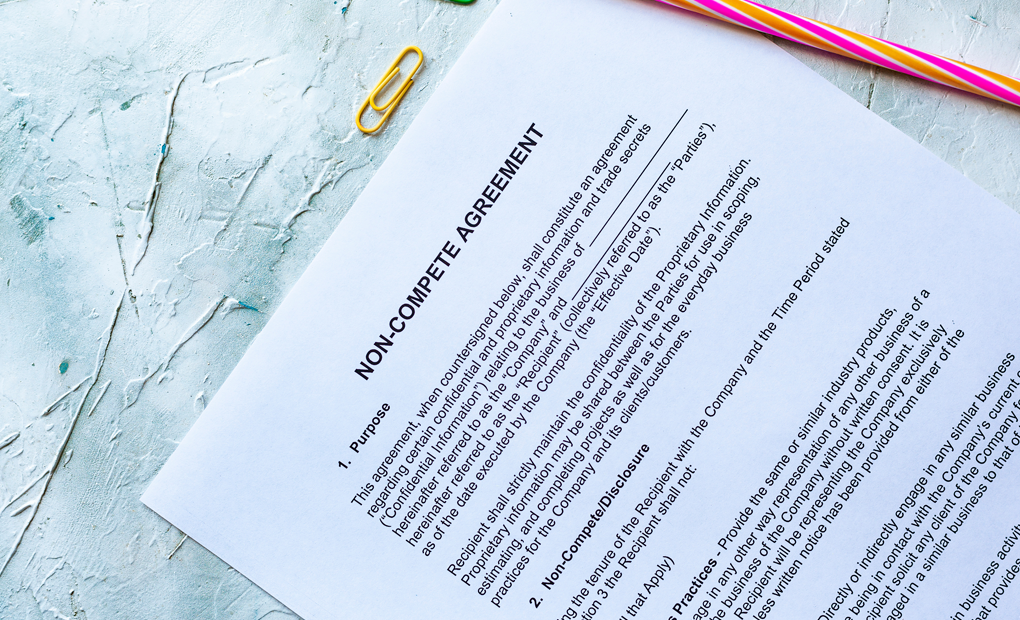Ph: 404.844.4130
Fax: 404.844.4135
3212 Northlake Pkwy #450906
Atlanta, GA 31145

On April 23, the Federal Trade Commission (FTC) issued a final rule banning most noncompete agreements nationwide. The FTC defines a noncompete as any term or condition of employment that prohibits a worker from, penalizes a worker for, or functions to prevent a worker from seeking or accepting employment with another business or operating a business. Noncompetes are tools often used by employers to protect their investment in employees, and their client and community relationships. On the other hand, noncompetes can be an exploitative practice imposing contractual conditions that prevent workers from taking a new job or starting a new business. Over the last ten years the use of noncompete agreements has gained increasing popularity such that an estimated 30 million workers—nearly one in five Americans—are subject to a noncompete.
If the rule survives legal challenges, Employers will not only be prohibited from entering into most new noncompetes, but will also be prevented from enforcing existing noncompetes in all but a few circumstances. Under the FTC’s new rule, after the rule’s effective, date existing noncompetes for the vast majority of workers will no longer be enforceable. Existing noncompetes for “senior executives,” defined as workers in policy-making positions earning more than $151,164 annually – who make up less than 1% of workers – can remain, but employers are banned from entering into or attempting to enforce any new noncompetes, even if they involve senior executives.
In January 2023, the FTC issued a proposed rule which was subject to a 90-day public comment period. The FTC received more than 26,000 comments on the proposed rule. The comments informed the FTC’s final rulemaking process, causing the agency to make some changes to the proposed rule in response to the public’s feedback.
In the final rule, the Commission has determined that the use by employers of noncompete agreements is an unfair method of competition, and therefore violate Section 5 of the FTC Act. Section 5 of the Act prohibits ”unfair or deceptive acts or practices in or affecting commerce.” The prohibition applies to all persons engaged in commerce. The Commission found that noncompetes tend to negatively affect competitive conditions in the labor market by inhibiting efficient matching between workers and employers. The Commission also found that noncompetes tend to negatively affect competitive conditions in product and service markets, inhibiting new business formation and innovation.
Employers are Charged with Giving Employees Notice
A key component of the rule is that employers will be required to provide notice to current and former workers (other than senior executives) who are bound by an existing noncompete informing them that the noncompetes are no longer valid and will not be enforced against them. In deference to the tens of thousands of comments the FTC received, the agency determined that employers do not have to formally rescind existing non-competes, as that would impose too great an administrative burden on employers
Before the effective date, however, employers must provide notice to both current and previous workers other than senior executives that their existing non-compete clause is no longer in effect and may not be enforced against them. Such notices must follow several guidelines:
The rule establishes model notice language, and provides employers who use this model notice can not be in violation of the rule as relates to the appropriateness of the notice.
Another concession the Agency made to the many employers opposed to the new rule is that it exempted from the prohibition against non-competes those circumstances involving the bona-fide sale of a business or sale of an ownership interest in a business.
Alternatives to Noncompetes
The new rule does nothing to interfere with an employer’s continued use of certain alternatives to noncompetes, such as non-solicitation agreements. The rule does not address non-solicitation of customers, clients, and employees, so that employers are still able to protect their investments without having to enforce a noncompete.
Trade secret laws and non-disclosure agreements (NDAs) both provide employers with well-established means to protect proprietary and other sensitive information. Researchers estimate that over 95% of workers with a noncompete already have an NDA.
Uncertainly
The final rules have already been challenged in court and will undoubtedly be placed under scrutiny in almost every jurisdiction. Additionally, the rules will probably have to overcome the hurdle of many states’ laws governing noncompete agreements. In the long run, these might be better vehicles for employers to utilize than the broader based noncompete agreements.
Schwartz Rollins will monitor the progress of the final rule and any court challenges that may result. But, employers cannot assume that the courts will block the rules and take away their responsibility to comply with the notice requirements. Therefore, you should take an inventory of all existing restrictive covenants, including those that are on-going against previous employees. Then figure out who among these employees fit within the “senior executive” category. Finally, start to prepare for the possibility that noncompete agreements may no longer be an option and that any existing noncompete agreements may not be enforceable, and prepare to notify any employees with whom you have a noncompete agreement that they will not be enforced.
Feel free to contact us with specific questions. You can learn more about our products and services on this website or contact one of our attorneys, Jay Rollins or Debra Schwartz by calling 404.844.4130.
